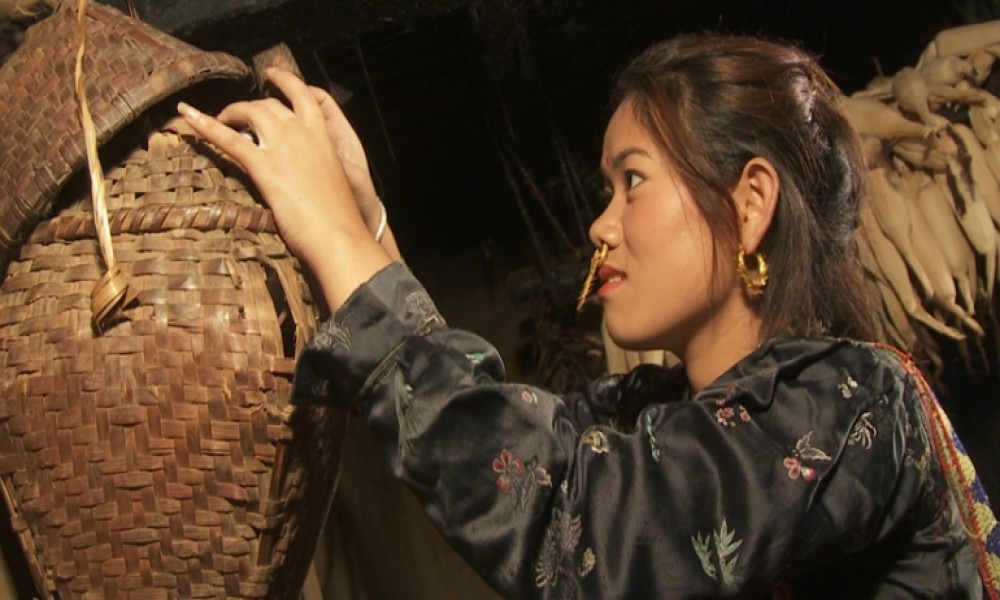With divided in the perspective among the political leaders, the identity has been one of the most disputing issues at present while writing a new Constitution.
One of the demands of Indigenous peoples in Nepal is that country must be federated on the basis of ethnic, lingual, geographic and historical identity. But the political leaders especially from Nepali Congress (NC) and CPN-UML are against this notion. This has resulted a political deadlock and was one of the reasons for not unveiling the draft of new Constitution by Jan. 22, as committed by the political parties.
Though the 'identity' has been one of the most discussed agenda, other demands of indigenous peoples such as right to self-determination, secularism and prerogative rights over the land, water and resources seems to have been sidelined.
Problem
The problem lies in divergent views in regards to the term 'identity' which has led to be the most controversial issues in the Constituent Assembly (CA). If it is to forge consensus on the basis of restructuring of state, the issue of 'identity' must need to be resolved first in terms of its understanding, definition and as subject. Therefore, instead of bringing clarity through negotiation, discussion and debate coming together, leaders are keen to make it highly controversial and linger the deadlock.
The fact is, Indigenous Peoples now see the federalism and its basis especially the 'identity' as non-negotiable issues and many political leaders when in government have signed the pact agreeing to restructure the state on this basis. The debate of federalism therefore now has linked with political and economic exclusion and the basis of ethnic, lingual and geographic (regional) identity.
While taking it to the conclusion, the State Restructuring and Devolution of State Power Committee of first CA recommended 14 provinces and 23 protected and autonomous areas, of them as many as 5 states on the basis of identity and 4 others on the basis of 'capability. But, before reaching to the consensus, the CA was dissolved.
The first meeting of second CA agreed upon accepting all the decisions made by the first CA and equally forming the High Level Political Dialogue and Consensus Committee, it was agreed to reach to the consensus on other remaining disputing issues such as electoral process, judicial system and election system including the basis, name and number of federal provinces. But, one year passed by political leaders don’t seem keen to have intensive discussion and reach to the consensus, because they are now stood in favor and against on the 'Identity' as a basis of restructuring of the state. But, the identity groups namely indigenous peoples, dalits, Madhesi and Muslims are taking to the street for pressing government to ensure the federalism on the basis of the 'identity'.
Indigenous Peoples now see the federalism and its basis especially the 'identity' as non-negotiable issues and many political leaders when in government have signed the pact agreeing to restructure the state on this basis.
Demands
At present, there is almost unanimous voice and demands for writing a new constitution that ensure identity based federalism. The deadline Jan. 22, set by the political leaders themselves have already ended, but the political leaders have not yet reached to the consensus neither have they dared to this end. Indigenous peoples have been making like a one line demands to ensure identity based federalism to address the sentiments of multi-lingual, multiethnic and multi-religious features of the country.
Chairperson of Nepal Sherpa Association, Central Committee, AD Sherpa says, "we indigenous peoples across Nepal are in the movement demanding to ensure identity based federalism. We will continue our movement up until it is ensured in the new constitution."
Similarly, the Chairperson of Nepal Magar Association, Central Committee, Mahendra Thapa says, "we have been making this demands in order to offset the centuries long exclusion and marginalization that the indigenous peoples have been facing."
Adding Thapa and Sherpa, Chairperson of Sunuwar Welfare Society, Central Committee, Mana Prasad Sunuwar says, "Indigenous Peoples are not making demands of federalism on the basis of identity, just for the sake of demanding, it is for uniting the diversity. Making countries across the world have taken 'identity'— either that be language, ethnicity, religion or geographical history, as the basis and which have set best examples either."
Lawmaker of Federal Democratic Forum, Rukmini Chaudhary points out, "On March, 1 2008, seven political parties in leadership of late Prime Minister Girija Prasad Koirala had reached to 5-point agreements at official resident of PM, Baluwatar. In the agreement, the political parties including NC and CPN-UML had agreed to restructure the state on the basis of identity, But today they are going against their own agreement.
Former founding General Secretary of Nepal Federation of Indigenous Nationalities (NEFIN) says that there is no question of single or multiple identity as NC and CPN-UML are diverting the issues leading to controversy. Rather, identity is always is a single like male or female, Nepali or Indian.
He further adds, "the demands of identity based federalism is not a recent one and baseless, it is taken as basis by many different countries in the world, even the former CA and political parties agreed upon in different time while making agreements with indigenous peoples, dalit, Madhesi and Muslim."
According to him, there should not merely the name of federal provinces such as Tamsaling, Limbuwan, Magarat etc. rather the constitution should equally guarantee in the constitution especially the issues such as prerogative rights of indigenous peoples who make a majority in the population and proportional representation of all ethnic groups in all tiers of decision making level and so forth.









